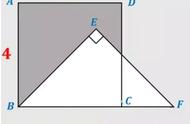引言:上次说到名词在句子中以1为分界线,一个(一类等)或者多个,表示一个的用法可查看前一节冠词的用法,多个就涉及到名词变复数的知识点。
本文创新点:1、合成词的名词变复数;2、口诀的总结
1、直接加s,map-maps bird-birds
2、以s,x,ch,sh结尾的名词加-es。
class-classes box-boxes watch-watches speech-speeches bus-buses brush-brushes bench-benches beach-beaches boss-bosses church-churches dress-dresses
3、以辅音字母+y结尾的名词,变y为i再加-es。(元音字母+y,直接加s)
baby-babies city-cities story-stories party-parties lady-ladies diary-diaries army-armies
century-centuries copy-copies
4、以-o结尾的名词,变复数
(1)加s(无生命的),如:photo-photos piano-pianos radio-radios zoo-zoos kilo-kilos
(2)加es(有生命的),如:potato-potatoes tomato-tomatoes Negro-Negroes hero-heroes
歌诀记忆:黑人(Negro)和英雄(hero)爱吃西红柿(tomato)和马铃薯(potato)。除了这四个以-o结尾的名词加-es外,其余的以-o结尾的名词加-s。
5、以-f或-fe结尾的名词变复数
(1)加-s,如:belief-beliefs roof-roofs gulf-gulfs
(2)去f,fe加-ves,如:half-halves knife-knives leaf-leaves life-lives wolf-wolves
thief-thieves self-selves wife-wives shelf-shelves
树叶(leaf)半数(half)自己黄,妻子(knife)拿刀去割狼,架(shelf)后窜出一只狼(wolf),就像强盗(thief)逃命(life)忙。
6、其他不规则变化
(1)man-men woman-women human-humans
(2)(oo-ee)goose-geese foot-feet tooth-teeth
(3)不变Chinese-Chinese Japanese-Japanese fish-fish deer-deer sheep-sheep fish-fish(不变)口诀:中国人、日本人骑着绵羊和鹿去吃水煮鱼
(4)mouse-mice child-children ox-ox/oxen fisherman-fishermen
[注]fish指鱼的种类时,要加上-es构成其复数;当指鱼的条数时,单复数同形;指鱼肉时,为不可数名词。
7. 合成词变复数:(1)中心词变复数
apple tree-apple trees girl friend-girl frends
(2)由man和woman构成的合成名词,两个构成部分都要变成复数
如:man worker-men workers(男工人)
woman doctor-women doctors(女医生)
8.表示“国家”的名词变复数
Chinese-Chinese Japanese-Japanese (中国人、日本人不变)
Englishman-Englishmen Frenchman-Frenchmen (有man或者woman的变化:man-men woman-women)
German-Germans (有man不按照man变化)
Russian-Russians Indian-Indians Canadian-Canadians American-Americans
以下非名词变复数,但是需要了解的名词:
1、以复数形式出现的名词
scissors剪刀 goods货物 trousers/pants/shorts裤子 clothes衣服 glasses眼镜
2、.以s结尾,仍为单数的名词
(1)maths,politics,physics等学科名词,为不可数名词,是单数。
(2)news是不可数名词。
(3)the United States,the United Nations应视为单数。
,














